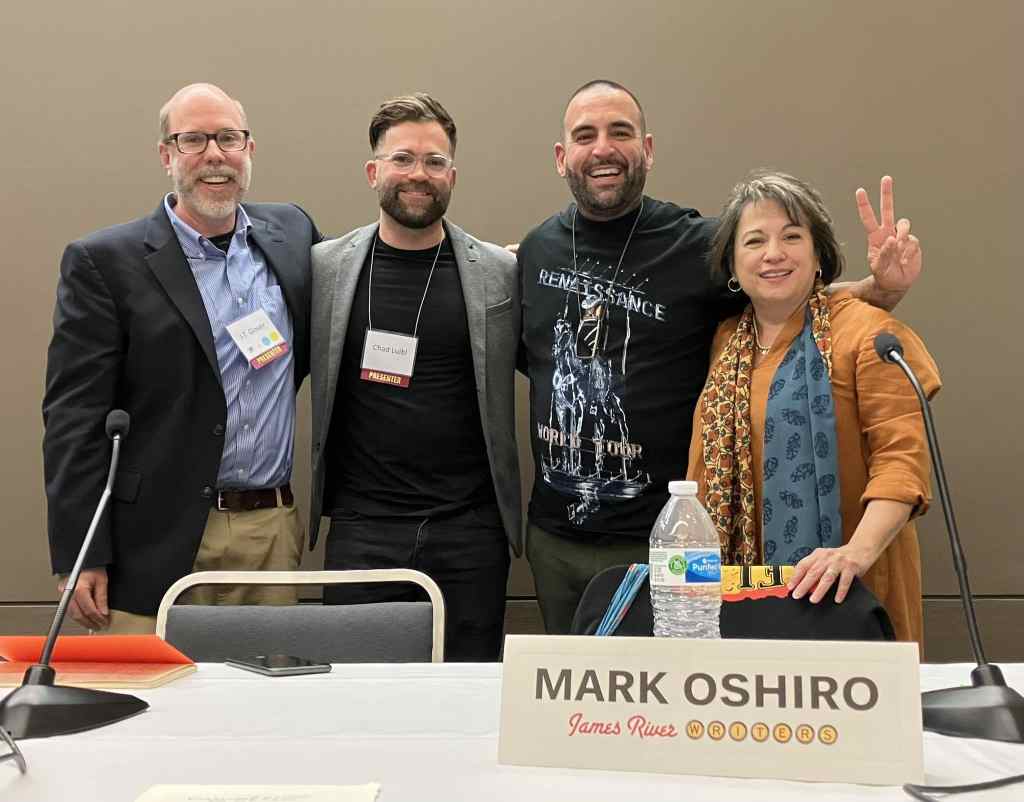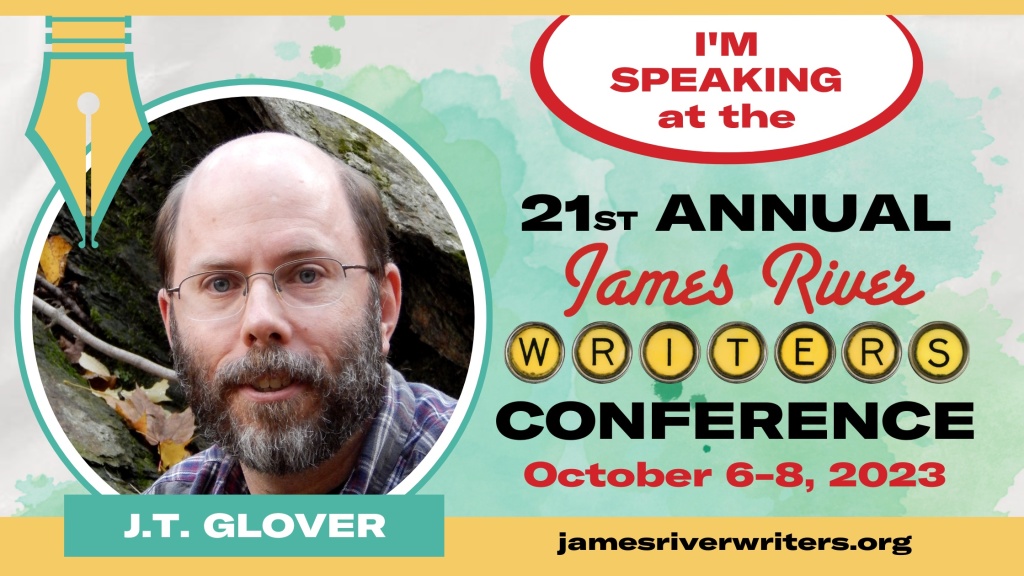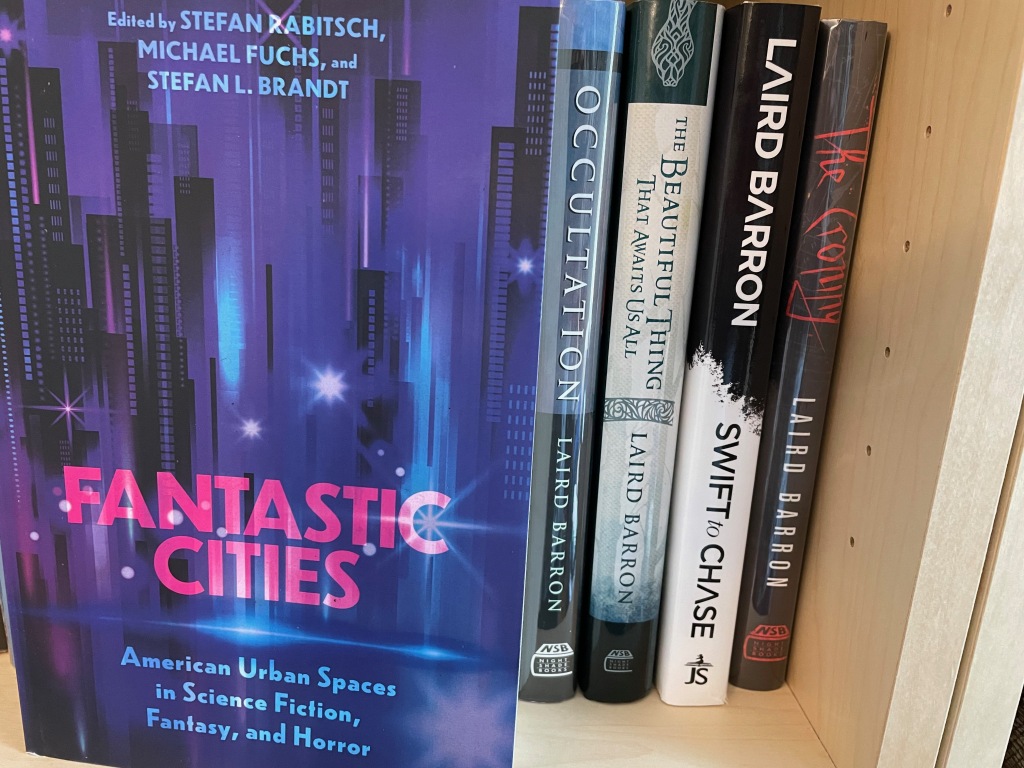Autumn always winds up this way: conferences, events, readings, and more. This year’s been no exception.
Though it’s hard to believe, the 2023 James River Writers conference was already nearly two weeks ago. It was a great time, from talking with friends old and new to thought-provoking panels to hearing about new books. The panels I moderated were (he said modestly) outstanding, and the audience was clearly into it. If there was a picture of the grants, awards, and residencies panel, I haven’t seen it, but here’s the crew after Things That Go Bump In The Night:

Barely a week later, I found myself at Williamsburg’s newest bookstore, Turn The Page Bookshop, celebrating the release of Dark Corners of the Old Dominion. It was a delightful (and spooky, naturally) afternoon with a bunch of ardent horrorists, and we did indeed sell copies of the anthology and more.


And last night I had the pleasure of attending the release for The Goth House Experiment, new out from Richmond author S. J. Sindu, whom I work with with my day job hat on. It was held at the always-excellent Fountain Bookstore, and the seats were full! I came home with the aforementioned title, as well as S. A. Cosby’s new one, All the Sinners Bleed, which has been in my sights (and my library hold list) for a while, and for which I finally couldn’t wait any longer:


